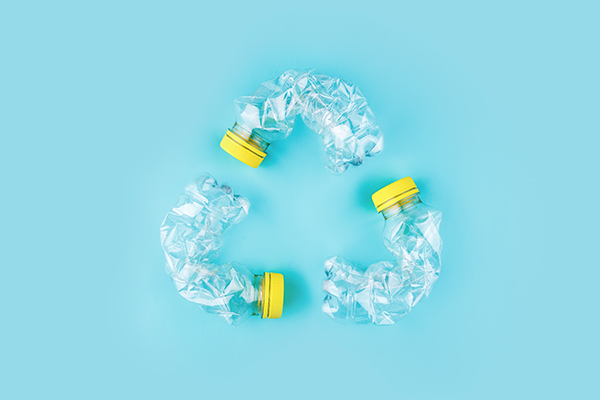
How do Recycled and Recyclable Differ?
Recycling is the process of collecting and processing materials that would otherwise be thrown away as trash and turning them into new products which then have recycled content. If a material is recyclable, it can reacquire the properties it had in its virgin or original state. Circularity in manufacturing can be achieved when recyclable materials are in fact recycled. More manufacturers are planning ahead at the conceptual stage of product development to educating the consumer on how to properly dispose of the product for recycling and to make the recycling process as simple as possible.
All sorts of goods can be recycled — the most commonly recycled materials include paper, glass, and various types of plastic. There are many ways to recycle goods as well. Plastic drink bottles are commonly made of Polyethylene terephthalate or PET which can be recycled back into bottles or other end products. This can be done by either mechanical or chemical methods.
Mechanical recycling of plastic or PET transforms the material back into raw materials without changing the base molecular structure of the material. For example, after sorting and processing, plastic is shredded and then melted down and then re-extruded into plastic pellets. These pellets are then used in new polyester fibers or other products. No chemicals are used in this method and it is the simplest form of recycling plastic.
Mechanical recycling is the most affordable and widely used PET recycling process, however after multiple times through the process the strength and structure of the plastic becomes deteriorated.
Chemical recycling of plastics, also called advanced recycling, takes plastic waste and reduces it back to its original molecular form, which is raw petroleum. This PET can then go back into manufacturing system and eventually be processed into entirely new polyester fiber or plastic items.
Although chemical recycling is more expensive than mechanical recycling of plastic, the raw petroleum is not degraded and could be used and recycled again and again feeding an “infinite” recycling system.
To share your thoughts on recycled PET or to learn more about SAYA fiber, please contact us at change@sayarenew.com